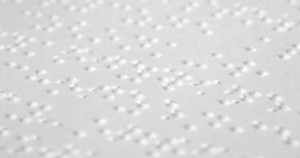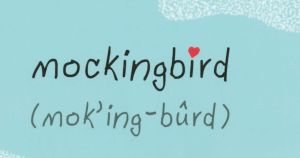
Interview with Lyn Miller-Lachmann about Rogue
Rogue is one of the rare novels about an autistic character written by an autistic author, and the book raises many intriguing questions to discuss.

Rogue is one of the rare novels about an autistic character written by an autistic author, and the book raises many intriguing questions to discuss.

Today we get most forms of entertainment at the push of a button, so we tend to hate having to wait. The situation is even worse if you can’t read print—resulting in an endless waiting game for blind readers.
If our contributors could tell an author writing a character with their disability one thing–besides “do your research”–what would it be?
What kind of tips do our contributors have for authors seeking to respectfully write disabled characters?

This book was awarded the National Book Award for Young People’s Literature, but as well intentioned as it might have been, it was clearly written by someone with almost no understanding of what Aspies are really like—it was written by and for a neurotypical audience.

Although I was underwhelmed by the portrayal of albinism in Akata Witch, it’s a great novel that features the first strong, sympathetic lead with albinism I’ve seen in quite a few years.

April Henry’s main character in Girl, Stolen is a well-researched, well-written example of blindness, and we were thrilled to discuss the book with her.

There are many different ways an author can express a sign language on the page; let’s take a closer look.

Shaunta Grimes’s Viral Nation is the rare YA dystopian novel with an autistic protagonist; we were keen to sit down with the author to discuss the book, its sequel Rebel Nation, and its protagonist Clover Donovan.

You Look Different in Real Life is a contemporary YA novel in which the broken friendship between the protagonist and her autistic best friend plays a central role–a thoughtfully handled plot thread that we were eager to talk to author Jennifer Castle about.